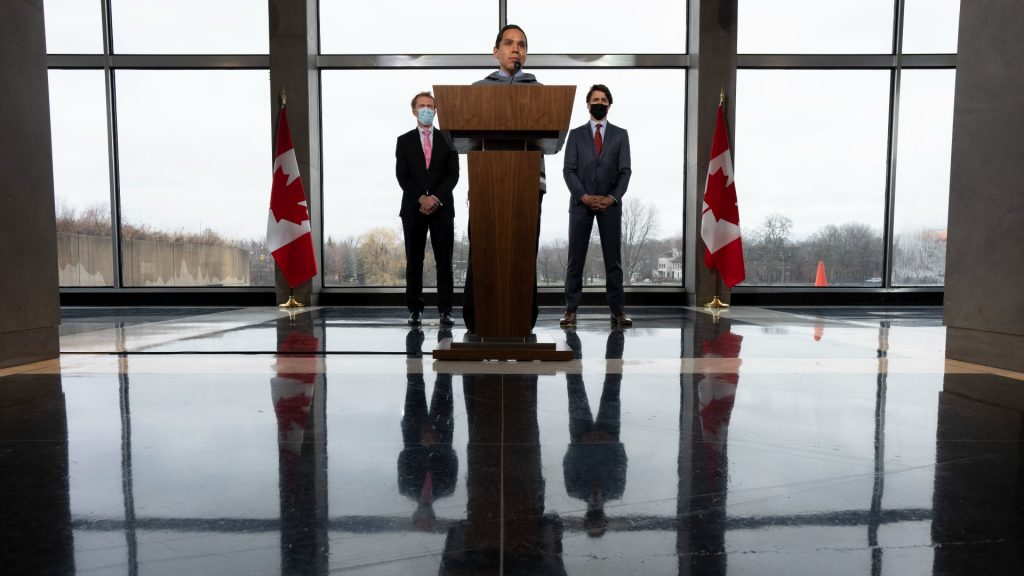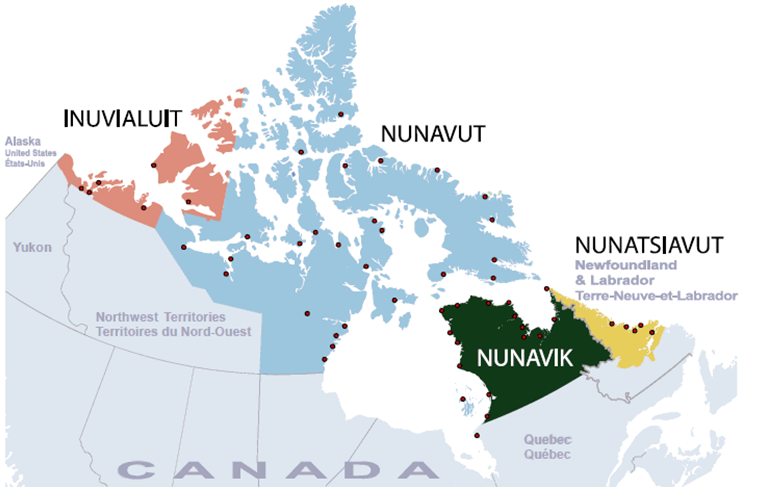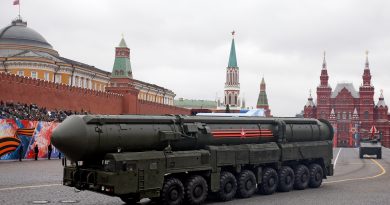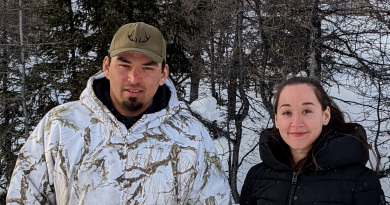Recognition of Inuit homeland in new policy important step towards self-determination: Canadian Inuit leader

A new policy recognizing the Inuit homeland in Canada as a distinct “geographic, cultural, and political region,” is an important step to greater autonomy, says Inuit leader Natan Obed.
“The Inuit Nunangat Policy has been the centrepiece of our work within the Inuit-Crown Partnership Committee and we are pleased to see it come to fruition,” Obed said in a news release on Thursday.
“This policy puts in place the structural change needed for the federal government to effectively respond to the needs of Inuit. It serves as an important step towards Inuit self-determination.”
The comments by Obed, president of Inuit Tapiriit Kanatami (ITK), the national Inuit organization in Canada, came after the Inuit-Crown Partnership Committee (ICPC) in Ottawa on Thursday, where a news conference was held announcing that the new policy had been endorsed by Inuit leaders and federal cabinet ministers.
“This historic policy will make sure Inuit priorities are incorporated into federal initiatives that effect Inuit and Inuit Nunangat,” Canadian Prime Minister Justin Trudeau said.
Inuit Nunangat is a term used to refer to Canada’s four Inuit regions: the Inuvialuit Settlement Region in Canada’s Northwest Territories; Canada’s eastern Arctic territory of Nunavut; Nunavik in northern Quebec; and Nunatsiavut, in the Atlantic Canadian province of Newfoundland and Labrador.

ITK said the new Inuit Nunangat Policy will guide any new, or revisited, federal policies, programs or services relevant to Inuit, and influence how they are designed and delivered.
The organization also stressed that the policy does not exclude areas of southern Canada with large Inuit populations like Ottawa, and will be inclusive of urban Inuit as well, something long asked for by urban Inuit organizations.
The federal government said it is committing $25-million over five years to implement the new policy.
Trudeau said the new policy will ensure Inuit are at the table on issues that effect them whether it concerns something like federal investments for marine infrastructure in the Arctic or the Department of Fisheries and Oceans working on new regional boundaries.
“The policy is about supporting Inuit-led solutions to distinctly Inuit challenges, promoting prosperity and equity and recognizing Inuit self-determination,” he said at the news conference.
The Inuit-Crown Partnership was set up in 2017 for Inuit and the federal government to work together on areas like culture, environment and socio-economic priorities.
Write to Eilís Quinn at eilis.quinn(at)cbc.ca
Related stories from around the North:
Canada: Yukon government’s First Nations procurement policy now in full effect, CBC News
Finland: Sami, environmental groups weigh in on Finland’s Climate Act reform, Yle News
Greenland: Inuit in Canada, Alaska and Greenland found international business association, Eye on the Arctic
Norway: Sami education conference looks at how to better serve Indigenous children, Eye on the Arctic
United States: How the International Inuit Business Association wants to transform commerce in the Arctic, Eye on the Arctic



